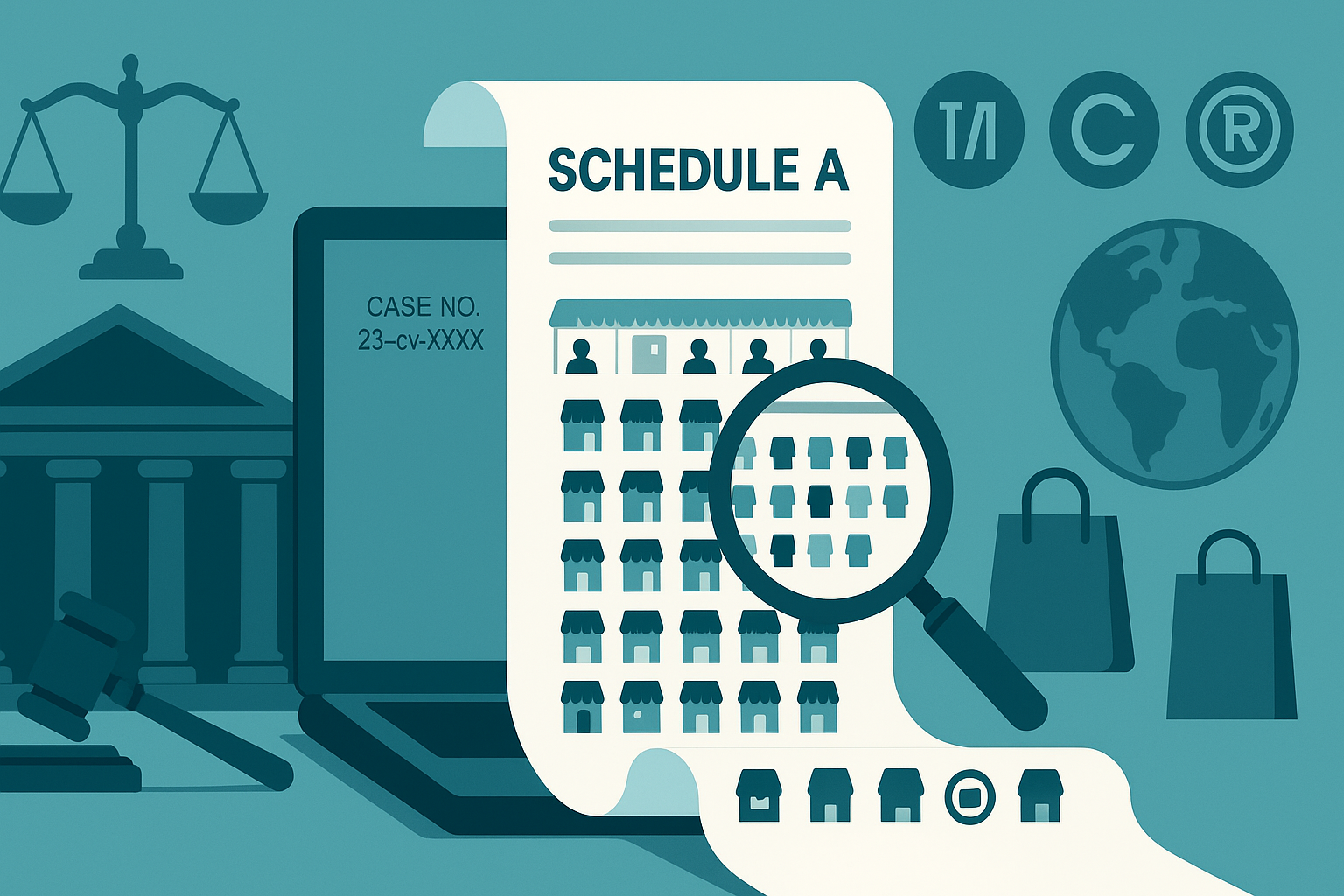Scholarship Critical of “Schedule A” Cases
October 16, 2025

Image created by ChatGPT 5.0.
A growing chorus of scholarly concern about “Schedule A” cases appears to be catching the attention of some district courts. In a “Schedule A” case, a holder of U.S. intellectual property rights will sue a large collection of defendants, often online merchants based outside of the United States, which it will list in a “Schedule A” attachment to the complaint that is filed separately under seal. The plaintiff then seeks to restrain the Schedule A defendants’ assets and enjoin further infringement. That freezing of accounts causes some defendants to settle or to challenge the U.S. courts’ authority, but many times the cases result in default judgments.
The Schedule A model has helped IP rights holders obtain meaningfully relief against rampant online counterfeiting, but it is also ripe for procedural shortcuts and due process abuses given its largely ex parte character and focus on expediency. One recurrent problem is that plaintiffs often seek and district courts often grant permission to serve Schedule A defendants by email under Rule 4(f)(3), even if the defendant resides in a country like China that is contracting party to the Hague Service Convention but has objected to service by “postal channels.” As Bill Dodge and I have explained, service by email in such circumstances not only violates U.S. treaty commitments, but also exceeds the authority granted by Rule 4(f)(3).
Recent scholarship raising concerns about Schedule A cases include
- Lei Zhu, Made in China, Sued in the U.S.: The Exploitation of Civil Procedure in Cross-Border E-Commerce Trademark Infringement Cases, 34 Duke J. Comp. & Int’l L. 139, 140 (2024): This thoroughly researched and well-written student note contextualizes the rise of Schedule A cases with the changing technology and structure of online commerce, documents how such cases are litigated by IP plaintiffs, and walks through four serious procedural concerns about the Schedule A approach: that e-mail service on defendants in China likely violates the Hague Service Convention and thus also the Federal Rules of Civil Procedure; that personal jurisdiction over the foreign-based online merchants may often be lacking; that joining hundreds of merchant-defendants in one case may fail Rule 20’s requirements of a shared transaction or occurrence and common question of law or fact; and that preliminary injunctions are being issued without the requisite notice to defendants.
- Eric Goldman, A Sad Scheme of Abusive Intellectual Property Litigation, 123 Colum. L. Rev. F. 183, 186–93 (2023): Professor Goldman describes how Schedule A cases work and documents their rise, particularly in the Northern District of Illinois (he dates the emergence of the model to 2013 and identifies a sharp uptick starting in 2020). The essay argues that the Schedule A approach abuses the legal system by permitting generic pleading, sidestepping proper service, brushing over personal jurisdiction requirements, allowing misjoinder, enabling non-individualized adjudication, and making ex parte restraining orders with real world stakes too easy to obtain. The few defendants who try to fight back are quickly dismissed by the plaintiff, which further limits the adversarial information presented to the judge.
- Sarah Frackrell, The Counterfeit Sham, 138 Harv. L. Rev. 471 (2024): Professor Frackrell discusses how the “Schedule A” approach has migrated from trademark to patent infringement cases, including potentially frivolous claims for infringement of design patents. She warns against the rhetorical (and legally erroneous) invocation of “nefarious counterfeiters” in such cases, which leads courts to sanction extraordinary ex parte relief.